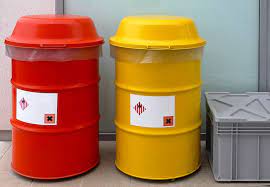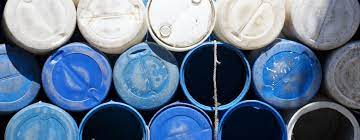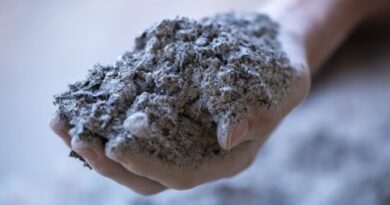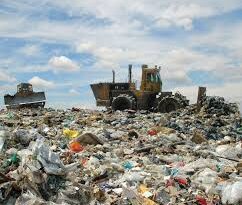Proper Methods of Disposal of Dilute Pesticide Waste
If you are spraying a pesticide, you should be able to do so with no, or very little, spray solution left over. Planning this will reduce your waste disposal problems and will save you money. However, in other situations (such as when you are applying a pesticide as a before planting or after harvesting dipping treatment) you may not always be able to avoid having dilute pesticide left over at the end of the treatment.
When you are treating several sites, one after another, using the same pesticide and the same equipment, you may be able to use leftover spray from one site to treat another, if you can transport the pesticide safely and legally.
You must dispose of all dilute pesticide waste (including any leftover pesticides and all sprayer washings) safely and legally to protect humans, wildlife and the environment, especially groundwater and surface water.
When you have finished applying the pesticide, clean both the inside and the outside of all equipment you have used. By thoroughly cleaning your application equipment, in line with the manufacturer’s instructions, you will help to:
Reduce any risk from handling contaminated surfaces;
Prevent damage to crops and areas which will be treated later using the same equipment; and
Reduce the risk of blockages.
Before cleaning your equipment, you should read and follow the label instructions on:
Using appropriate personal protective equipment when handling contaminated surfaces; and
Carrying out any decontamination procedures relating to the particular product (for example, some herbicides need to be de- activated with ammonia-based cleaning agents).
If possible, you should clean the equipment you have used (inside and out) at the site of the treatment, rather than having a single, dedicated site for cleaning.
You should use any built-in rinsing systems that are fitted to clean the inside of the equipment quickly and effectively while using the minimum volume of rinse water.
Similarly, a hose and brush attachment (which is available on some sprayers and can be fitted to others) will help you to clean the outside of the equipment more effectively than a high pressure spray gun, and will use less water.
Repeated tank washing, each using a small amount of water, will achieve better results than a single rinse using a large amount of water and will also produce less washings.
As well as cleaning the tank, you will also need to make sure that all pipes, hoses, filters, valves, nozzles and induction systems are thoroughly cleaned.
All facilities for washing equipment should be designed to make sure that the pesticide solution cannot get into your washing water under any circumstances.
Possible options for disposing of dilute pesticide waste include the following:
You can apply the contaminated water to the treated or untreated crop or area within the terms of the product approval, but make sure not to exceed the maximum dose;
You can store the contaminated water in a suitable container until a licensed waste-disposal contractor can collect it;
When using pesticides in agriculture, you can only dispose of the dilute waste onto soil or grass (either directly or fed by the drainage from a hard surface) under the terms of an authorization under the Groundwater Regulations issued by the Environment Agency.
To keep to the Landfill Regulations, you must not use a single site in this way more often than once a year. The land of choice for this purpose must:
Be able to absorb the volume of liquid to be disposed of onto it without run-off or leaving puddles;
Result in the smallest possible risk to wildlife and watercourses;
Protect groundwater (by not allowing the pesticide to reach the water table);
Read Also : How to Reduce the Amount of Wastes Produced
Present the smallest possible risk to septic tanks, field drains or sewage systems; and
Where necessary, be signposted and fenced to keep people and livestock out.

If you have suitable equipment (such as your own effluent treatment plant designed for treating liquid waste containing pesticides (you can process the dilute waste yourself, as long as:
− You (or the person using the equipment) have an appropriate waste-management licence (or have registered an exemption) under the Waste Management Licensing Regulations; and
− The treated effluent is collected and either disposed of as stated in the waste- management licence or, if registered as exempt, reused (for example, as irrigation water or for preparing a spray solution).
You can dispose of the dilute waste to a lined biobed as long as:
− You have an appropriate waste-management licence (o have registered an exemption) under the Waste Management Licensing Regulations; and
− The water flowing out from the base of the biobed is collected and either disposed of as stated in the waste-management licence or, if registered as exempt, reused (for example, as irrigation water or preparing a spray solution).
You can dispose of the dilute waste into a sewer under a ‘trade effluent consent’ issued (in rare circumstances) by the local company which manages the sewage treatment works the sewer is connected to.
Waste that contains substances classified as ‘special category effluent’ also need approval from the Environment Agency before a ‘trade effluent consent’ can be issued.



